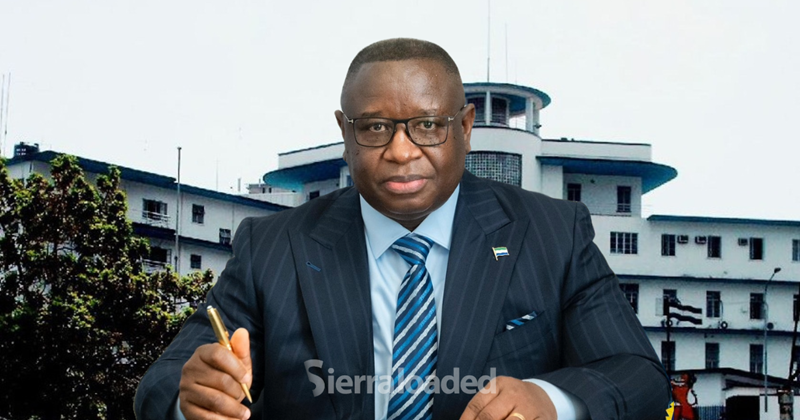President Julius Maada Bio’s flagship Free Education project, a cornerstone of his administration’s agenda, is facing severe challenges due to significant delays in procurement processes.
The initiative, designed to enhance educational access and resources across Sierra Leone, is particularly at risk due to complications surrounding the procurement of solar-powered tablets intended for 6,061 schools nationwide.
Two key figures, Mr. Mohamed Kallon, the procurement specialist, and Mr. Ambrose T. Sesay, the project coordinator for the Free Education Project Secretariat, have come under scrutiny for their roles in the ongoing delays. Concerns over potential conflicts of interest have been raised, especially as Mr. Sesay is reportedly related to the Chief Minister. This connection has fueled allegations of nepotism and mismanagement, further complicating the project’s implementation.
The World Bank, a critical partner in the Free Education project, has expressed alarm over the management of several related initiatives. Specifically, the construction of student hostels in Pujehun, Kailahun, and Bonthe, intended to offer safe housing for students from remote areas, has been criticized as “not fit for purpose.” These hostels, located in isolated and potentially unsafe areas, have failed to meet their intended objectives, exacerbating the risks for vulnerable students.
Additionally, the procurement of high-quality printers and toners for the teachers’ licensing program has been stalled due to a legal dispute. A bidder’s challenge has brought the process to a standstill, with accusations that the contract was awarded to a company that did not participate in the bidding process. This legal wrangling has delayed the implementation of critical components of the licensing initiative, raising serious questions about the transparency and fairness of the procurement process.
Primary schools are also being impacted by these procurement delays. Essential teaching and learning materials for Primary One students have yet to be delivered, forcing the Teaching Service Commission (TSC) to print teacher’s guides in black and white to prevent further disruption. As schools prepare to reopen, the absence of these critical resources threatens to undermine the quality of education for thousands of students.
The most alarming issue remains the stalled procurement of solar-powered tablets, despite the World Bank’s “no objection” to awarding the contract to the most responsive bidder. Reports suggest that Mr. Kallon and Mr. Sesay are pushing for the Ministry of Communication and Technology to test a sample device not submitted by the winning bidder, a move that contradicts established procurement protocols and raises significant concerns about the integrity of the process.











